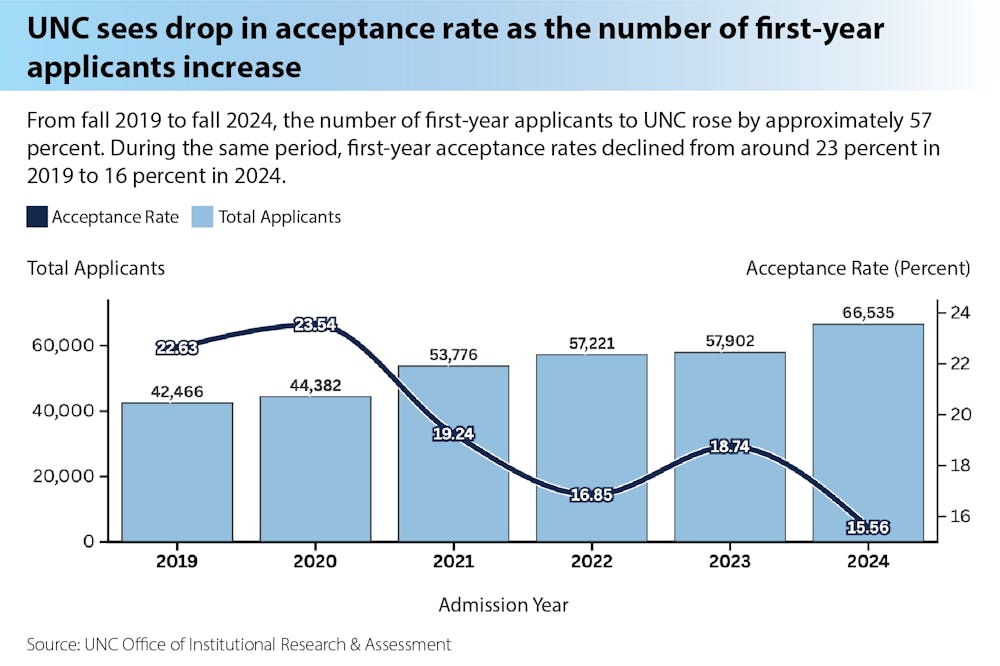In the past five years, UNC has experienced a consistent rise in the number of applicants seeking admission to the University.
During the 2019 college application cycle, UNC received just under 42,500 applications and during the 2024 application cycle, it received over 66,000, according to the University’s common data set. As a result of this rise in applications, UNC’s acceptance rate declined from 22.6 percent to 15.6 percent during that period.
Vice Provost of Enrollment Rachelle Feldman said she attributes this increase in applications to UNC’s institutional reputation.
“The atmosphere and school spirit, the way our students are very collaborative, the fact that we focus on developing leaders and giving people broad opportunities, that the faculty are of quality and care about teaching — I think for all of those reasons, we have seen a continual increase in interest in North Carolina,” she said.
She also noted the appeal of the University’s affordability, saying that UNC is one of the few top-five-ranked public universities that meet the full financial needs of students.
Private College Admissions Coach Camy Sorge cited alternative reasons for the increase in applications. She said in the face of rising concerns over job security and artificial intelligence, more applicants are seeking admission to colleges with higher rankings.
“They want to feel like, 'If I go to school, it's going to make a difference,'” she said. “And so I think that makes people concentrate: ‘Well, I'll choose a school that has a really strong reputation, has a really high ranking, and that will make it more likely that it'll be worth it.’”
Independent Educational Consultant Neisha Frank said as top universities receive more applications each year, their acceptance rates drop. In turn their U.S. News and World Report ranking, and therefore their desirability for prospective students, goes up.
Out-of-state students face an even greater challenge when seeking admission. Due to state law, only 18 percent of admitted students can come from outside North Carolina, while 82 percent must be in-state residents.



